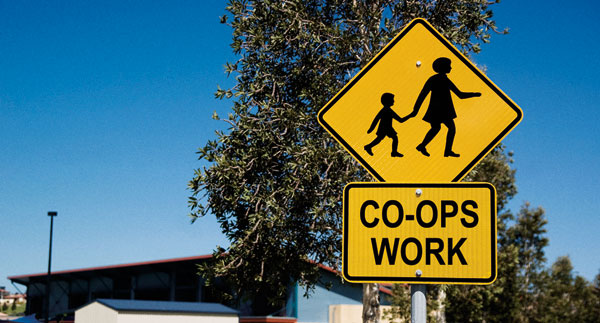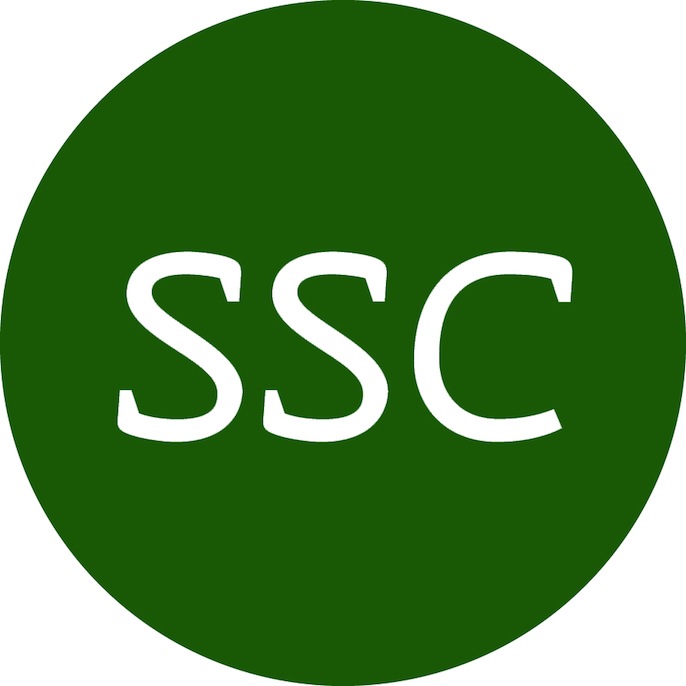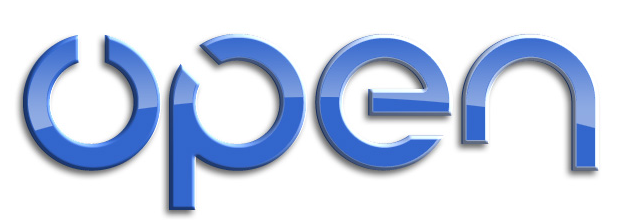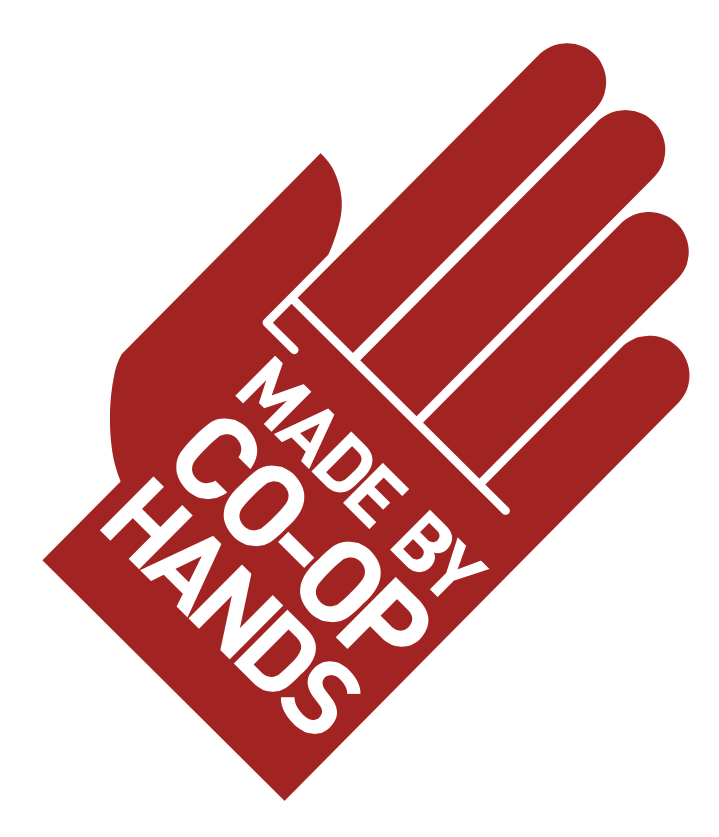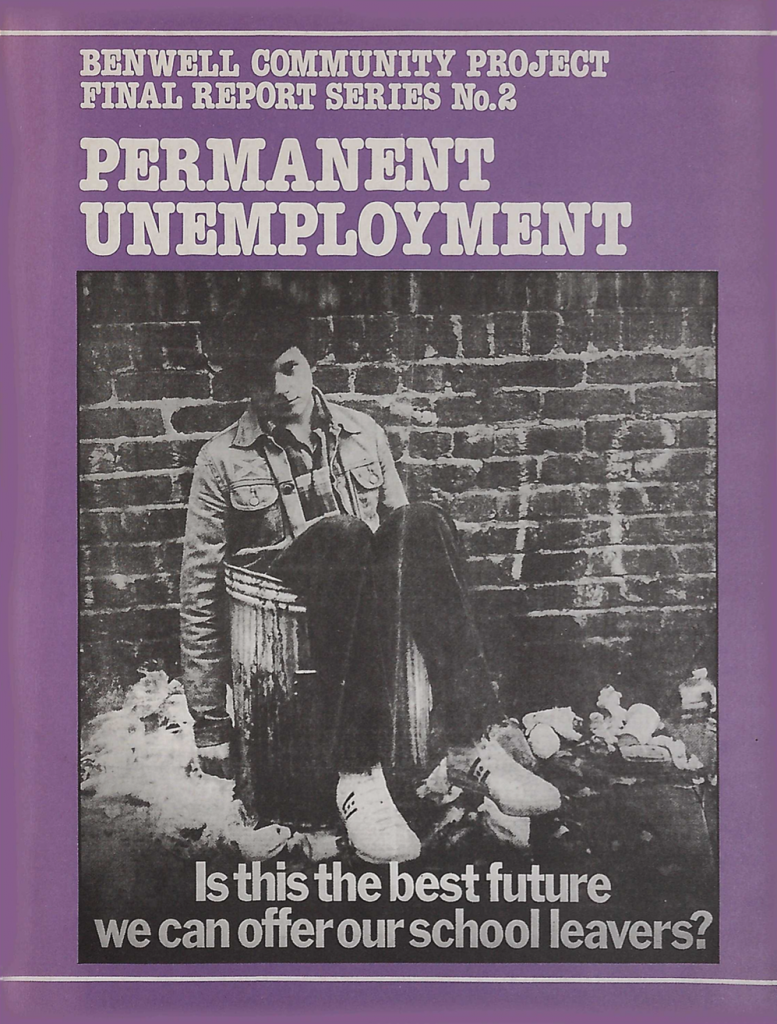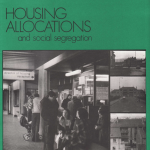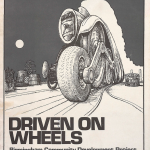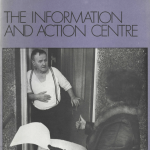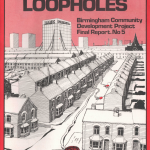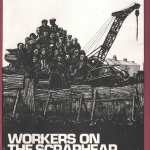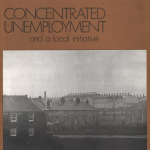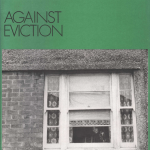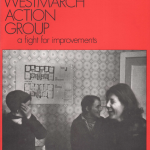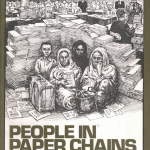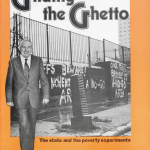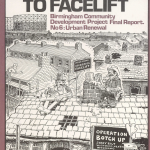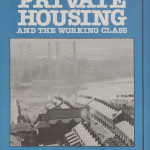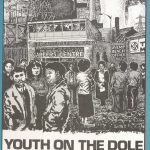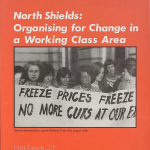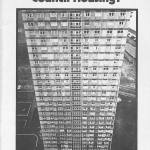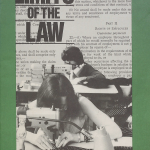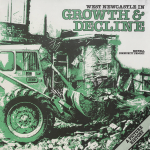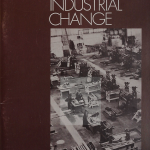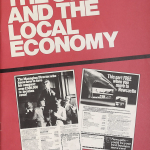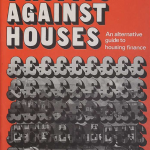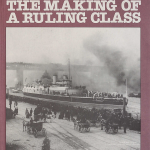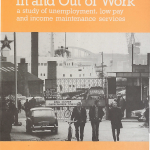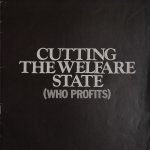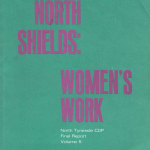Earlier this week, I gave a paper at the EU-funded UNIKE conference: Universities in the knowledge economy: Perspectives from the Asia-Pacific and Europe. The theme of the conference is outlined as follows:
“What is the place of universities in the emerging ‘ecology’ of higher education systems that straddle industry, government and the public sphere? How are universities negotiating the demands placed upon them to compete in the global knowledge economy? What new subjects and spaces are emerging under the new conditions of existence for universities? How do academics, students, managers and policy makers make sense of these changes? Are there alternative ways of organising the university and its relations with society and if so, where are these being developed?”
I was on a panel focused on ‘Alternative Ways of Thinking the University’. The title of my paper was, ‘Labour, property and pedagogy: Theory and practice for co-operative higher education.’ The panel (split over two sessions), also included Sarah Amsler (Lincoln), Catherine Butcher (Roehampton), Fern Thompsett (Queensland), Aniko Horvath (Kings College), and discussants, Rebecca Boden (Roehampton), Sue Wright (Aarhus), and Chris Newfield (UC Santa Barbara). It was a real privilege to be able to participate on the panel with them and I have found my discussions with them about alternative, free, co-operative, and other models of higher education really insightful and useful.
My paper distilled and summarised three papers I’ve previously written. In the script below, I draw from two previous conference papers (here and here) as well as a journal article which will be published next month. My thinking on co-operative higher education feels pretty solid right now, what with over four years of helping run the Social Science Centre and a number of talks and papers written over the last year or so. The next stage in my/our praxis is to develop a detailed model for co-operative higher education, based on what we have learned and theorised so far, and drawing widely from expertise within the co-operative movement and from colleagues in higher education studies. Mike Neary and I have submitted a small grant proposal that, if successful, will enable us to pursue this next stage of work.
When I was first invited to the UNIKE conference, I proposed a paper which was more theoretical and reflective on the political economy of alternative higher education. However, the panel organiser asked whether I might offer something more reflective on the Social Science Centre and co-operative higher education in general, hence why I have drawn on earlier work. It was a reminder that, as is very often the case, people are really eager to learn more about the SSC as a concrete example of alternative and co-operative higher education that continues to exist, despite all the difficulties and energy it takes from lots of people involved. It is wonderful to be here in New Zealand and be told by people from Australia, Denmark, the US, and the UK, that the SSC provides inspiration to their own projects to develop alternative forms of higher education.
Abstract
In this paper, I will reflect on four years of being a founding member of the Social Science Centre, Lincoln (SSC), a small co-operative for free, higher education in England. In doing so, I will argue that, through praxis, we are creating an alternative model to the discipline of wage labour and the pedagogy of debt; one that is grounded in a coherent theory of labour, property and pedagogy. I will conclude by outlining how that model might be expanded into a transnational ‘co-operative university’.
Script
This paper discusses work I’ve been doing with others since 2010 to practice and theorise co-operative models of higher education. I’ll be drawing from a recent journal article in which I try to develop a coherent theory of academic labour, property and pedagogy for a co-operative university.
The conference theme this week questions the changes taking place within higher education around the world and seeks to understand its various and changing social roles and forms.
I want to begin by looking back to an earlier conference to ‘Reimagine the University‘, organised this time by students at the University of Leeds in November 2010.
The conference organisers stated that
“It is clear that the university system is bankrupt and in need of profound change, but no-one can see an alternative, a solution, a way out. We need to resist the threatened cuts and the ongoing onslaught on education – but we also need a transformation.”
That conference was both an act of resistance to the recent Browne report that indicated the rise in tuition fees, and also an act of solidary, as students and their teachers walked out of their classes and occupied a central lecture theatre.
Across the country, students were occupying their universities, and by doing so were making a direct claim on the property of the institution, rather than walking away from it. They stated:
“We don’t want to defend the university, we want to transform it!”
I was there to talk about a new model of free, co-operative higher education called the Social Science Centre.
Now, over four years later, I’d like to use my time in front of you to talk about the Social Science Centre, and more generally about the idea of co-operative higher education. In doing so, I hope to offer some ideas that speak to the theme of this panel, which is: ‘Alternative Ways of Thinking the University’.
In November 2010, the Social Science Centre (SSC) was little more than an idea that we had written up and were beginning to share with friends and colleagues. It was appropriate that the SSC had its first public outing at the Leeds conference because of the work that Paul Chatterton and Stuart Hodkinson at Leeds had done on autonomous social centres.
Their ESRC-funded research project had revealed to us a network of inspiring autonomous social centres across the UK and Europe, which acted as hubs of resistance to the privatisation of public spaces, such as universities. We saw how these co-operatively run Centres collectively broaden and strengthen the efforts of existing social movements by providing space and resource for the practice of different forms of social relations, not based on wage work and private property but instead on mutual aid and the construction of a social commons. Modeled on the social centres, we wanted the Social Science Centre to provide a space for higher education and for developing our work in ways that were impossible within a mainstream university.
And what exactly, I am often asked, is the Social Science Centre?
In a recent collectively authored article, we stated that:
“The Social Science Centre (SSC) organises free higher education in Lincoln and is run by its members. The SSC is a co-operative and was formally constituted in May 2011 with help from the local Co-operative Development Agency. There is no fee for learning or teaching, but most members voluntarily contribute to the Centre either financially or with their time. No one at the Centre receives a salary and all contributions are used to run the SSC. When students leave the SSC they will receive an award at higher education level. This award will be recognized and validated by the scholars who make up the SSC, as well as by our associate external members – academics around the world who act as our expert reviewers. The SSC has no formal connection with any higher education institution, but attempts to work closely with like-minded organizations in the city.”
The Social Science Centre is a laboratory for experiments in higher education. It is a model that we think could be replicated by other people. It is not and never has been an alternative to everything that the modern entrepreneurial university seems compelled to do. How could it possibly be compared to the University of Auckland, Roehampton or Lincoln? Yet what we can say is that it does provide an alternative to individuals who desire a higher education at the equivalent level to that found inside a university if they wish, with a progressive model of teaching and learning which is reflected in our constitution that insists all members, or ‘scholars’ as we call ourselves, have an equal say in the running of the co-operative. Rather than make the distinction between academics and students, we recognise that we all have much to learn from each other.
When thinking more broadly about co-operative higher education, it might help to recall an article on financialisation and higher education written by Andrew McGettigan in which he concludes:
“I am frequently asked, ‘what then should be done?’ My answer is that unless academics rouse themselves and contest the general democratic deficit from within their own institutions and unless we have more journalists taking up these themes locally and nationally, then very little can be done. We are on the cusp of something more profound than is indicated by debates around the headline fee level; institutions and the sector could make moves that will be difficult, if not impossible, to undo, whether it is negotiated independence for the elite or shedding charitable status the better to access private finance.”
The ‘democratic deficit’ that McGettigan highlights is undoubtedly a key issue that any alternative form of university must address. However, democracy itself is malleable both as a concept and in practice. What does it even mean to practice democracy here in New Zealand or in the UK, when supranational networks of capital are being formed to effectively control national and international economic processes?
In thinking of alternatives to the university, I’d like to suggest that in addition to democracy, a number of other values can be combined to create a sustained alternative to how we think about the organising principles of higher education.
“Co-operatives are based on the values of self-help, self-responsibility, democracy, equality, equity and solidarity. In the tradition of their founders, co-operative members believe in the ethical values of honesty, openness, social responsibility and caring for others.”
Co-operatives are based on the seven principles of:
- Voluntary and Open Membership
- Democratic Member Control
- Member Economic Participation
- Autonomy and Independence
- Education, Training and Information
- Co-operation among Co-operatives
- Concern for Community
As with the Social Science Centre,
“a co-operative is an autonomous association of persons united voluntarily to meet their common economic, social, and cultural needs and aspirations through a jointly-owned and democratically-controlled enterprise.”
This combination of values and principles does not take a single institutional form but offers a framework for reconceiving our social relations, the meaning of work and the purpose of teaching and learning.
Taken as a whole, efforts around co-operative higher education over the last three years can be understood in terms of three routes: Conversion, dissolution, and creation.
By this I mean the wholesale conversion of existing universities to co-operatives; or the gradual and possibly subversive dissolution of university processes into co-operatively governed equivalents; or the creation of new institutional forms of co-operative higher education.
The success of each should not be measured against the apparent success of existing mainstream universities, but rather on the participants’ own terms and the type of higher education they need and desire.
The creation route intends to rethink not only the organisational and constitutional form of higher education but also its institutional, physical and spatial and pedagogic forms, too. It seeks to develop a co-operative higher education which recognises and builds on a long tradition of working class, self-managed, alternative, open and radical education. As a co-operative, it is neither public nor private higher education as we usually understand these terms, but instead open, autonomous, democratic, and held in common for the benefits of its members and society.
I want to make clear that if our aim is a broadly conceived co-operative higher education, I think we should be trying to pursue all three routes of conversion, dissolution and creation without prejudice of one over another. However, I also recognise that each of us will, for good reasons, prefer to focus our individual efforts on a particular route. For me, for the past four years, it’s been the creation route.
The categories I have started to use when trying to think of and indeed practice co-operative forms of higher education are that of ‘labour, property and pedagogy’. I think each of these are foundational categories with which we develop a new model for education.
I’ll briefly say that by ‘property’, I’m referring to the idea of an ‘academic commons’, combining the principles, practices and legal framework of the open education movement with the co-operative movement’s principles, practices and legal framework of ‘common ownership‘. It is not public nor private ownership, but rather a legally constituted form of social property.
By labour I don’t simply mean work, although that’s how we experience labour much of the time. No, by labour I refer to the capacity or potential of individuals to do something that is considered socially useful. Labour has a very concrete form that we can all recognise as well as an abstract, social, homogenous form that we are mostly unaware of but is uniquely characteristic of labour in a capitalist society, where the division of labour and the production of goods and services is undertaken through co-operation. From this perspective, teaching is a form of labour and so is learning. The academic undertakes labour and the student does, too. Each has the capacity to perform the labour of teaching and learning and at the level of higher education this division of labour can be a productive relationship where knowledge is not simply distributed, consumed or ‘banked‘ as Paulo Freire wrote critically about, but actively produced through a pedagogic relationship in which teacher and student learn from each other in their social context.
I appreciate that it goes against the grain to refer to students as workers and learning as a form of labour, especially now when students are driven by government policy and a pedagogy of debt to assume the role of consumers.
Nevertheless, I’m by no means the first person to frame the role of students as workers and argue that their labour is both reproductive and productive. If you accept that both teachers and students co-operate through a division of labour to produce knowledge (and remember it’s the production of new knowledge that distinguishes a higher education), then we have a situation where labour is understood as the basis for a social, pedagogic relationship.
My point then is that in rethinking pedagogy, where the student is also understood as a producer of knowledge, we have to rethink the division of labour, too, and the roles we slip comfortably into as ‘teacher’ and ‘student’, producer and consumer. I think that a new form of co-operative higher education should challenge these roles and recognise that we have much to learn from each other.
As it exists today, the university is a means of production employed by capital to reproduce labour in the form of students, and value in the commodity form of knowledge. A worker-owned and managed co-operative university would therefore control the means of knowledge production and potentially produce a new form of social knowledge. In pursuing alternatives, we need to consider existing models of co-operation and how they might be applied to a co-operative form of higher education; one which is not primarily aimed at teaching students skills for the social factory, but instead aimed at students discovering for themselves the processes of knowledge production, within which we find our own place and meaning.
I want to end my talk by outlining a way forwards for one model of co-operative higher education. This is not intended to be the only model. As I’ve indicated, I hope that co-operative higher education will grow in diversity and federate in co-operative solidarity rather than consolidate into a single monolithic form as we see in the existing universities.
First, we should start with a clear understanding of our intended pedagogic model and always be mindful that the institutional form and our chosen co-operative model are first and foremost derived from the pedagogical relationship that we’re aiming to create in our co-operative for higher education.
Second, having established our pedagogical framework, we then need to look at existing models of co-operation. We need to break down the features of worker, social and open co-operatives, identifying their categories of membership, their overall purpose and the ways in which they distinguish between the production of goods and the provision of services, between physical and intellectual property, and the forms of reciprocity between producers and consumers. Are the existing model rules adequate for higher education or do we need a new set of rules?
Third, we need to understand how national legislation affects our aspirations for co-operative higher education. To what extent do we wish to align co-operative higher education with the existing funding and regulatory system of universities? It’s a question about what is required by law and also about our relationship to the state and the important idea of ‘public education’.
Fourth, we need to work on business models and understand the legal and financial frameworks that might inhibit and support the financing of co-operative higher education. I think we should start small, not attempting to imitate existing universities and everything they try to do. We should consider what services, other than teaching and learning, members can provide in exchange for income but also in exchange for other services provided by co-operatives. We need to plan for forms of mutualism, seek support from the national and global co-operative movements and from trade unions; we need to talk to real co-operative banks, credit unions and philanthropic trusts; consider various membership funding schemes, and think of ways that both academics and students can be paid for their work, as is the case at some liberal arts colleges in the USA.
Fifth, social/solidarity or multi-stakeholder co-operatives rely on non-monetary forms of reciprocity, often in the form of volunteers. We need to think carefully about the role of volunteers and our dependence on the volunteering of time and energy by all members to ensure that various forms of reciprocity are recognised and valued and that members are not exploited.
Finally and importantly we need to concurrently plan for national and transnational federations of co-operatives for higher education. We need to work with a global body such as CICOPA, who already represent the interests of worker and social co-operatives worldwide, and develop mechanisms of global solidarity and support for co-operative higher education. This might be in the form of sharing resources and knowledge, the development of recognised and accredited programmes of study, perhaps in partnership with existing awarding bodies, that carry all the experience, recognition and endorsement of the co-operative movement. We need to work with housing co-ops and other co-operative enterprises that can meet the needs of academics and students, and with trade unions who have always recognised the value of education, but also understand that co-operative work can still benefit from the protections of being unionised work. We need to recognise that most social and worker co-operatives are intentionally small by comparison to existing universities so as to retain their democratic principles and that based on this fact, we are planning relatively small but networked and federated co-operatives that exist for the social, for the common. We need a model that can scale horizontally rather than vertically and in doing so, we need to employ the tools and techniques of open co-operatives to the governance of our co-operatives for higher education at the local and transnational levels.
As some of us conceive it, a ‘co-operative university’ is not simply a form of resistance against what the university has become; but, rather, it is a dialectical response which recognises that the conditions for a new social form of higher education already exist and the time has come to organize the co-operative alternative.
